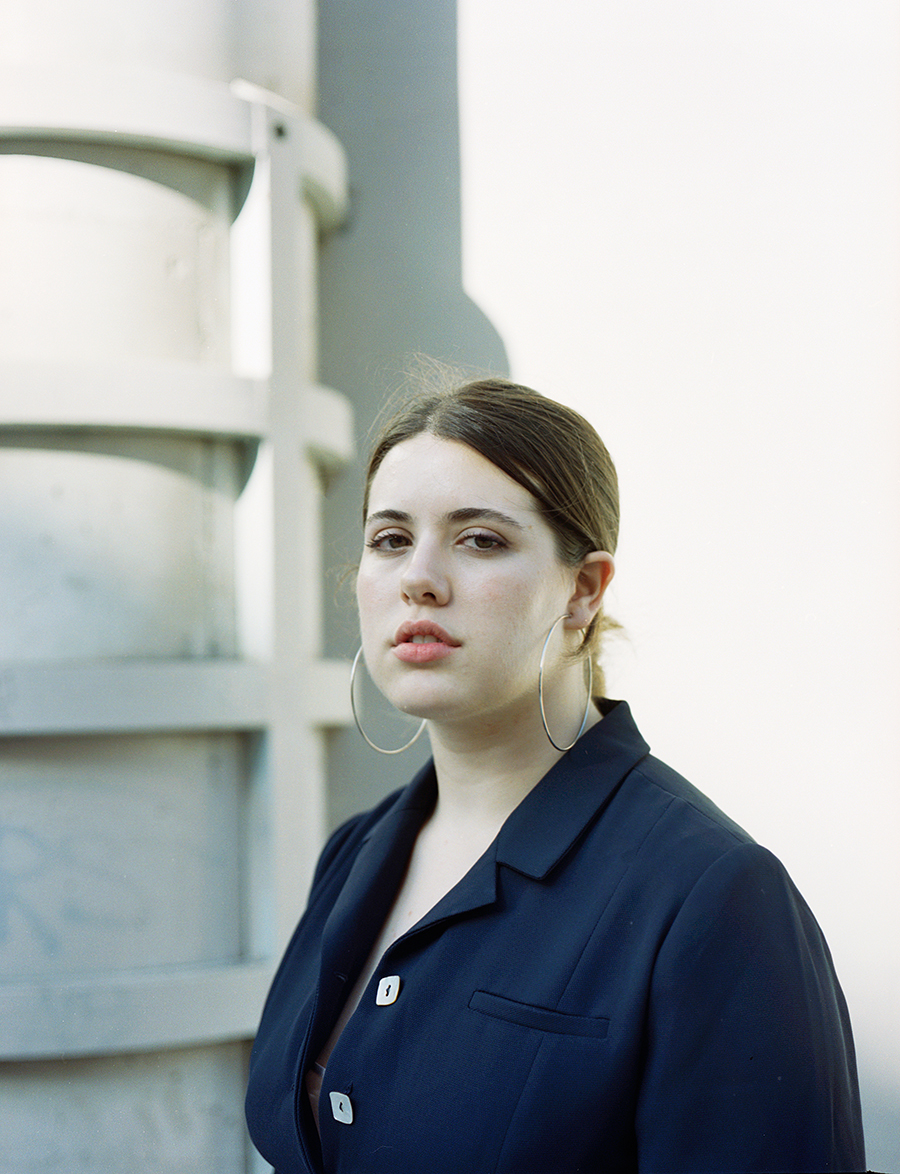Helena Gorogoro, 25, Barcelona
What do you do?
I study tricot and pattern-making, but I used to work in styling.
What does beauty mean to you?
For many years, my perception of the world was directly attached to my appearance and how that was perceived by others, and vice versa. My beauty parameters were ruled by misogynist, racist, and capitalist classist standards, but the day finally came when all of these things stopped making sense [to me] and I rejected them. To me, beauty has gone from being an aspirational thing to being something real and even political. The nice thing is when something that’s supposedly ugly excites you, even if only just a little bit.
Have you ever felt discriminated against because of your appearance?
Of course. Although now being fat seems to be a trend, it continues to be taboo. In my case, people are very subtle, but in that terrible attempt at being politically correct is when people have the most contempt, with classic lines like “you’re not fat, you’re just large,” or “well, but at least you have a gorgeous face.” I spent my adolescence on a thousand diets, obsessed with my weight and with becoming someone I wasn’t, but I’m eternally grateful to my sister, the internet, and feminism — they opened my eyes in many respects.
Do you consider Spain’s prevalent beauty ideals to be inclusive?
No. Spain is an extremely misogynist and racist country. The minute someone uses the term “exotic” to describe anyone and no one is bothered by it, you’ll realize we have a lot of problems. I think it must have something to do with having this very neo-colonial and capitalist mentality, in which only what belongs to us has any value, and concepts that are practically unattainable to the majority of people become standardized. You can see that directly in our beauty standards.
How do you think we could defy these pre-established standards?
Existing in this world just the way I am without apologizing has become a highly political and protest act in of itself. For so many years, I justified my appearance or have tried to change it in order to please people — but the day I stopped trying, I realized that people accepted my beauty in a different way. To me, it’s been important to put myself in situations I previously believed I wasn’t allowed to be in, and also to rebuke ideas that attack everything outside the norm. It’s almost a constant in my life.
When do you feel best about your image?
When I’m just the way I want to be, where I want to be, and with who I want to be. I feel comfortable as long as I’m not being conditioned by anything other than my own free will.
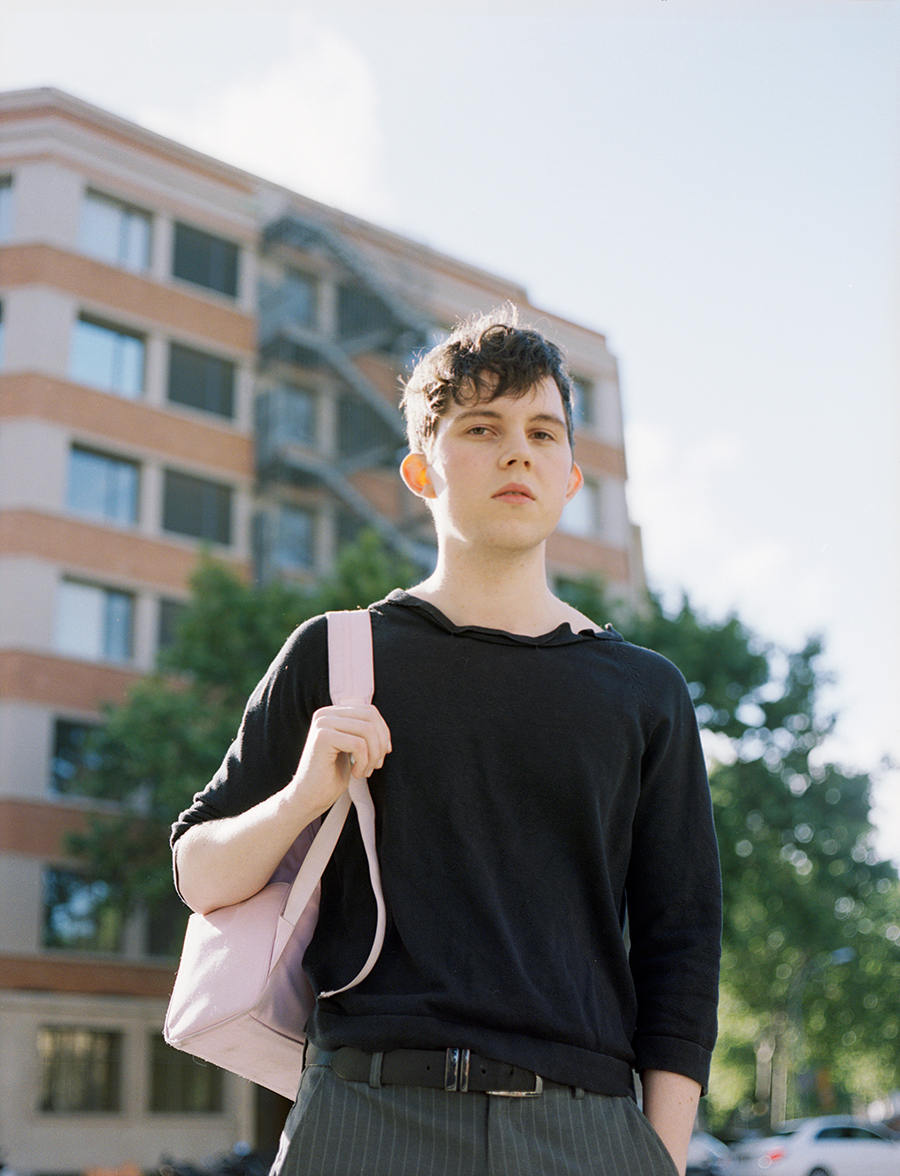
Stephen Lyne, 22, Asturias
What do you do?
I work as a graphic designer and I make music.
What does beauty mean to you?
A group of attributes needed in order for something or someone to be pleasant to you.
Have you ever felt discriminated against because of your appearance?
I’ve received some comments in the past — stuff like “you need to eat more” — but I honestly can’t complain about something like that. I’ve never had anything uniquely negative happen.
Do you consider Spain’s prevalent beauty ideals to be inclusive?
Honestly, no. They’re not particularly inclusive in any aspect. For example, if in a different country a runway casting consists of only white models, it’ll be heavily attacked. Here, that’s practically all you see. Things move little by little, but it’s something. In Spain, people continue to be a bit racist and stuff.
How do you feel social media has affected our concept of beauty?
There’s a little bit of everything. On one hand, for example, I’ve noticed that if you see how people are presented on Instagram, you might think, “wow, skin goals!” even though all of that is due to lighting and retouching, and then maybe you’ll start developing certain complexes. But the complete opposite also happens — there might be something you’ve considered ugly or a defect at first, and then it’s presented in a pretty way or in a cool context, and you might think, “oh yeah, I like that.”
When do you feel best about your image?
After showering, washing my hair, exfoliating my skin, putting a face mask on, hydrating, putting makeup on, and getting dressed to go out and party with my friends. All as long as I drink two to three quarts of water and eat at least five pieces of fruit or vegetables on that day!
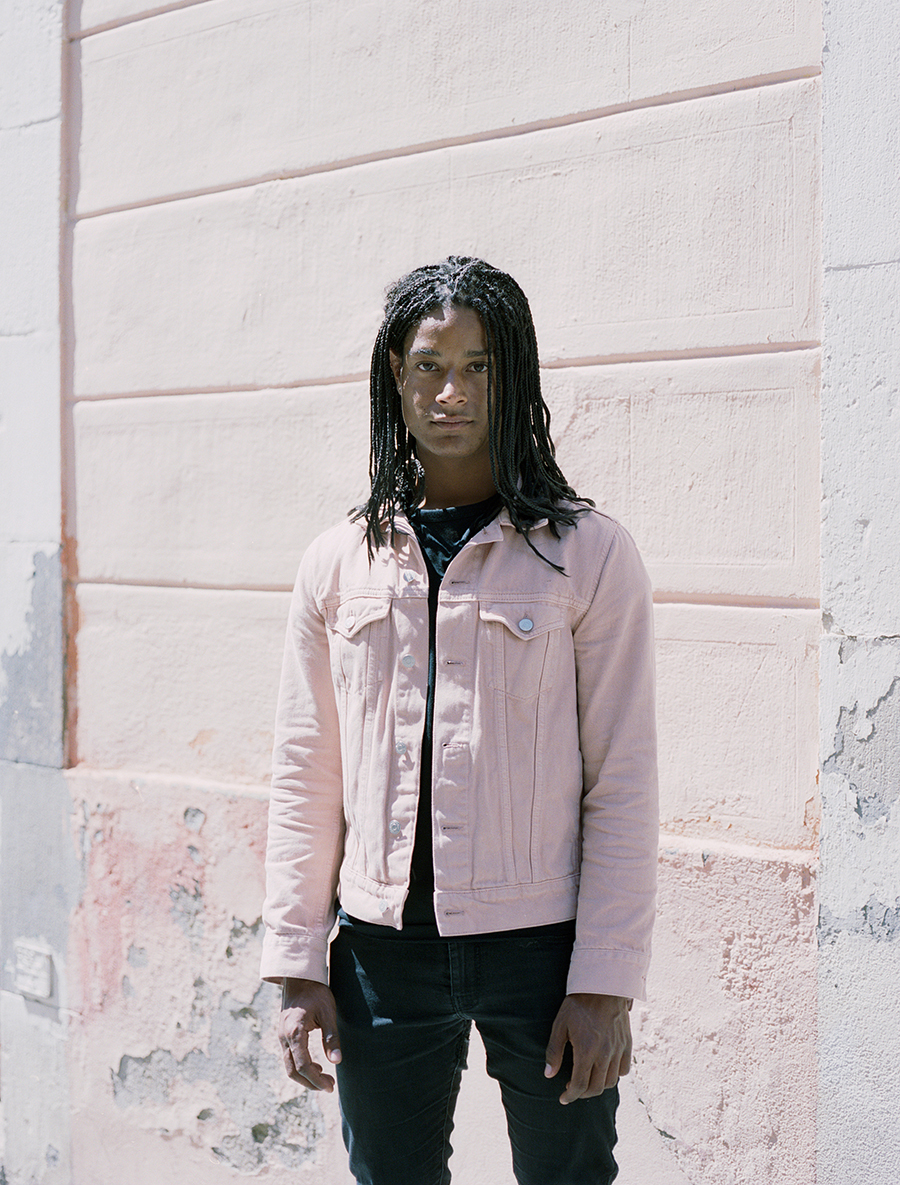
Xavier Salvat, 21, Barcelona
What do you do?
I’m a fashion marketing student.
What does beauty mean to you?
To me, beauty is each individual’s perception of the things they consider pretty. There are a lot of standards that define what is beautiful and what isn’t. I think there’s beauty in everything, but we don’t always want to or are able to see it.
Have you ever felt discriminated against because your appearance?
It took a lot of time for me to accept it, but yes. If you stand out in any way, the reactions can be positive or negative. You learn you can’t always blend into the crowd or go unnoticed. The truth is that this shouldn’t be your goal, because being yourself, accepting yourself, and being able to communicate that to others will attract wonderful people into your life.
Do you consider Spain’s prevalent beauty ideals to be inclusive?
I think Spanish society is capable of many things. These ideals transform over the years to become more inclusive each time. I think the most important thing right now is the need to create a social conscience and an education rooted in respect for other humans, and eliminating labels. If there weren’t so many labels based on appearance, we’d be less critical towards others and towards ourselves. That’s how we could avoid prejudice-based illnesses.
How do you think we could overcome these pre-established standards?
By knowing one another. Rejection is born from ignorance. We should seek to understand, empathize, and inform ourselves about what makes us feel out of place. Knowledge starts with us. Working inwardly makes us strong and less vulnerable. Knowing how to listen is some of the best advice I’ve been given. To truly listen to the person in front of you, to focus all our attention on what they’re saying, and to let them finish and then answer coherently.
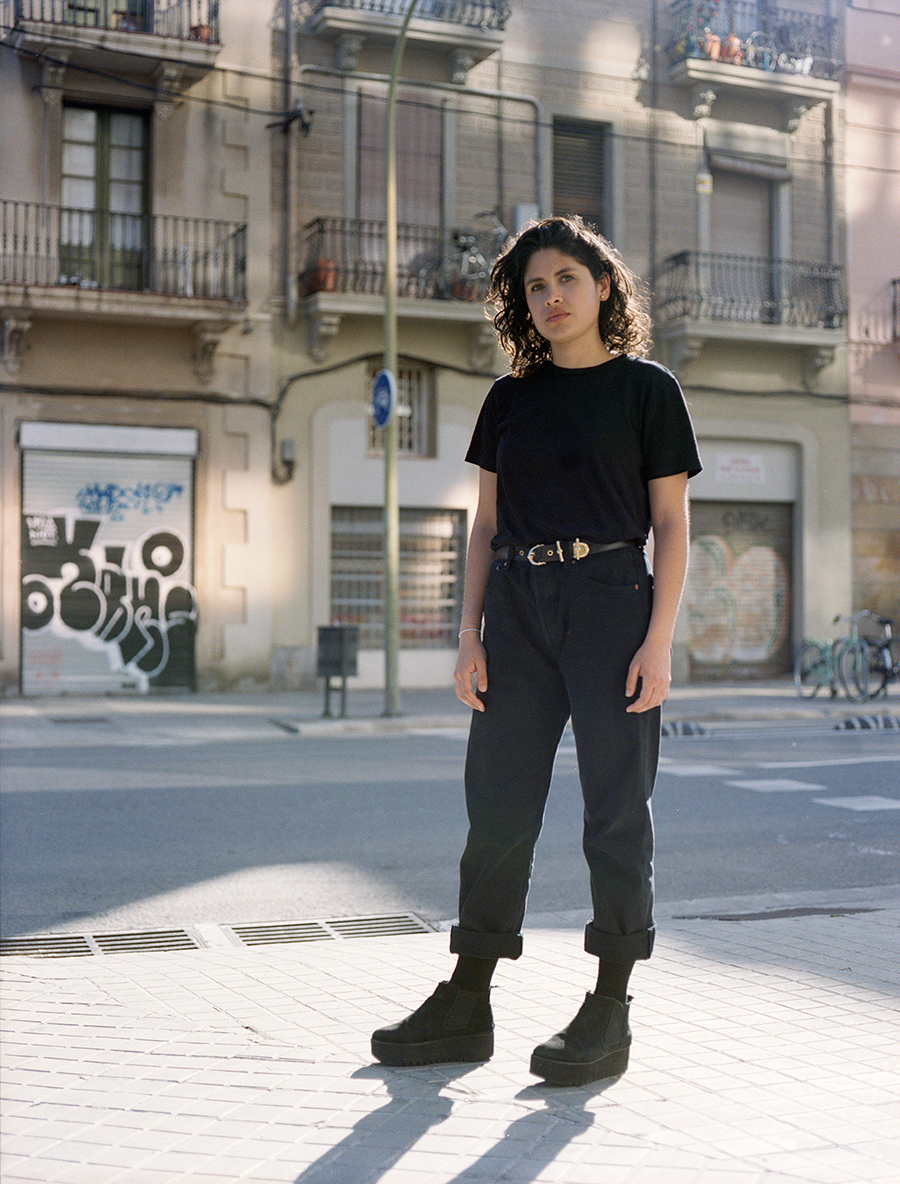
Romina Puga, 26, Lima
What do you do?
I study fashion at Bau, [the Design College of Barcelona].
What does beauty mean to you?
Beauty is a sensory experience: Something that makes me feel pleasure, satisfaction, or happiness. Every time I see something that I consider beautiful, I’m in love and get nervous. I’m addicted to beauty and I believe there’s nothing more beautiful than finding something or someone that’s real and authentic. Even in the grotesque there is a potential for beauty; it’s up to our consciousness and experience to recognize it.
Have you ever felt discriminated against because of your appearance?
People usually treat me well and very rarely have I [experienced discrimination]. However, I have felt criticized, observed, or judged more by people close to me than by strangers. I have also been described with derogatory terms like “exotic” when [someone is] unable to describe my physical appearance. By classifying me like that, they’re saying that they think I’m good-looking, like a strange fruit that attracts the eye and calls for attention. I could look that way, but that’s not the correct way to talk about those who don’t fit within European beauty norms.
How do you feel social media has affected our concept of beauty?
In a way, it’s had a positive effect, because a lot of people use [social media] as a tool for expression and breaking beauty taboos. That’s good, because it acts as a form of liberation and acceptance. However, it’s also method for fast communication, which means that [impromptu] comments about our appearance could affect us greatly. It could make us more critical than we actually are, to a point where it could work against each person’s beauty and dignity. We have to be very careful about how we critique other people.
When do you feel best about your image?
I feel very comfortable with my image most of the time because I’ve learned to love, value, and trust myself. It’s daily work and it’s difficult, but it’s very rewarding. Working out gives me a lot of confidence and I’ve learned to accept, love, and respect my own body, and mostly to take care of it, because it’s the only thing I feel is truly mine. [People in power have] filled our heads with lots of shit, and disconnecting from that is hard, but I’m sure there’s nothing more powerful — and dangerous — than a self-confident human being. Once you trust yourself, there are no limits.
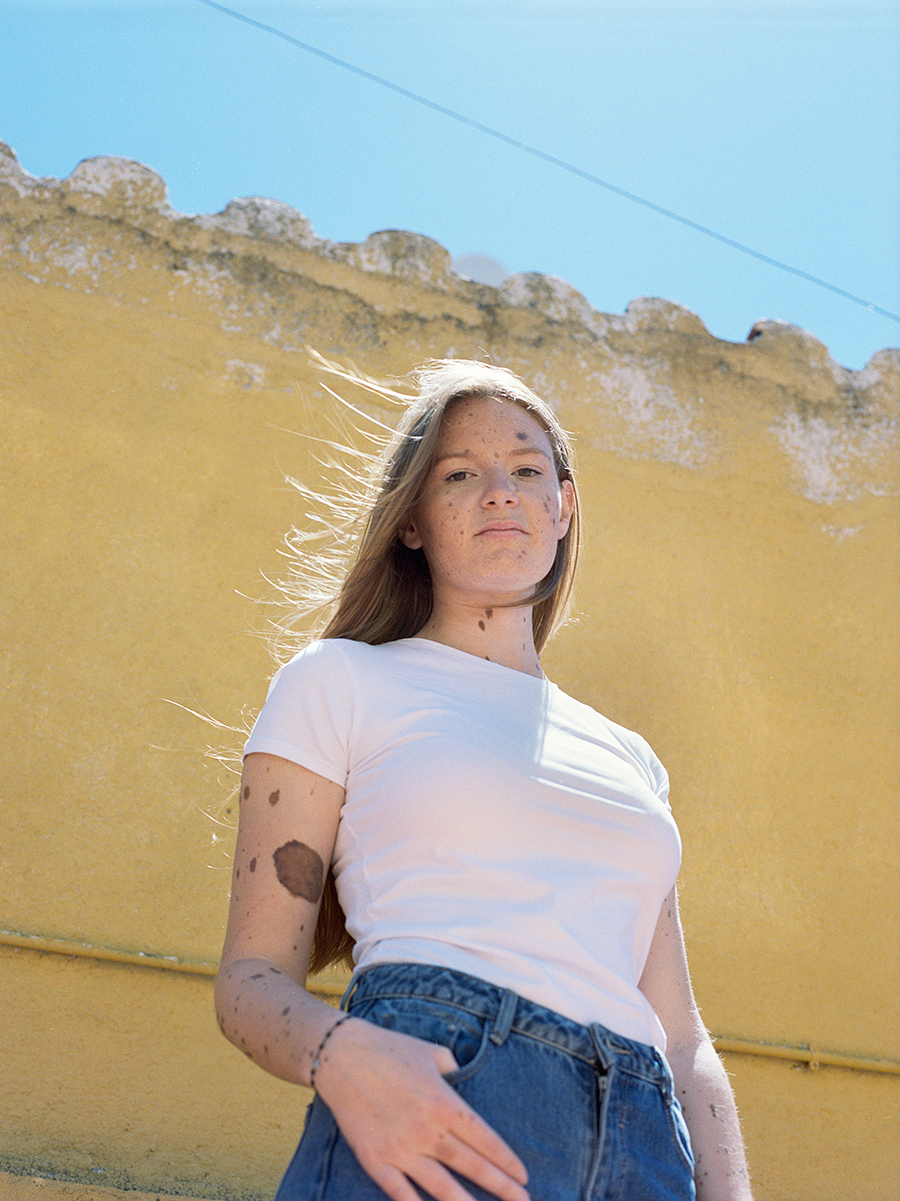
Alejandra Savoia, 24, Barcelona
What do you do?
I work at a PR agency as a CRM consultant.
What does beauty mean to you?
The capacity some people have to make you laugh and make you feel better.
Have you ever felt discriminated against by your appearance?
Generally speaking, no. But in certain situations I’ve been surprised by the way some people behave, both good and bad.
Do you consider Spain’s prevalent beauty ideals to be inclusive?
No. We continue to have a very traditional concept of beauty. Shows like the ones we watch on TV continue to feed us certain beauty stereotypes, which are idealized and unreal.
How do you think we could defy these pre-established standards?
Putting more emphasis on culture and less on our outer appearance. Most of all, realizing that we are not united by our bodies but by our brains.
How do you feel social media has affected our concept of beauty?
Social networks have complete freedom in regards to shared content. It’s no longer tied to a specific editorial line or a brand.
When do you feel most at ease with your own body?
It’s not so much about my body, but about feeling good with myself as a whole, physically and intellectually.
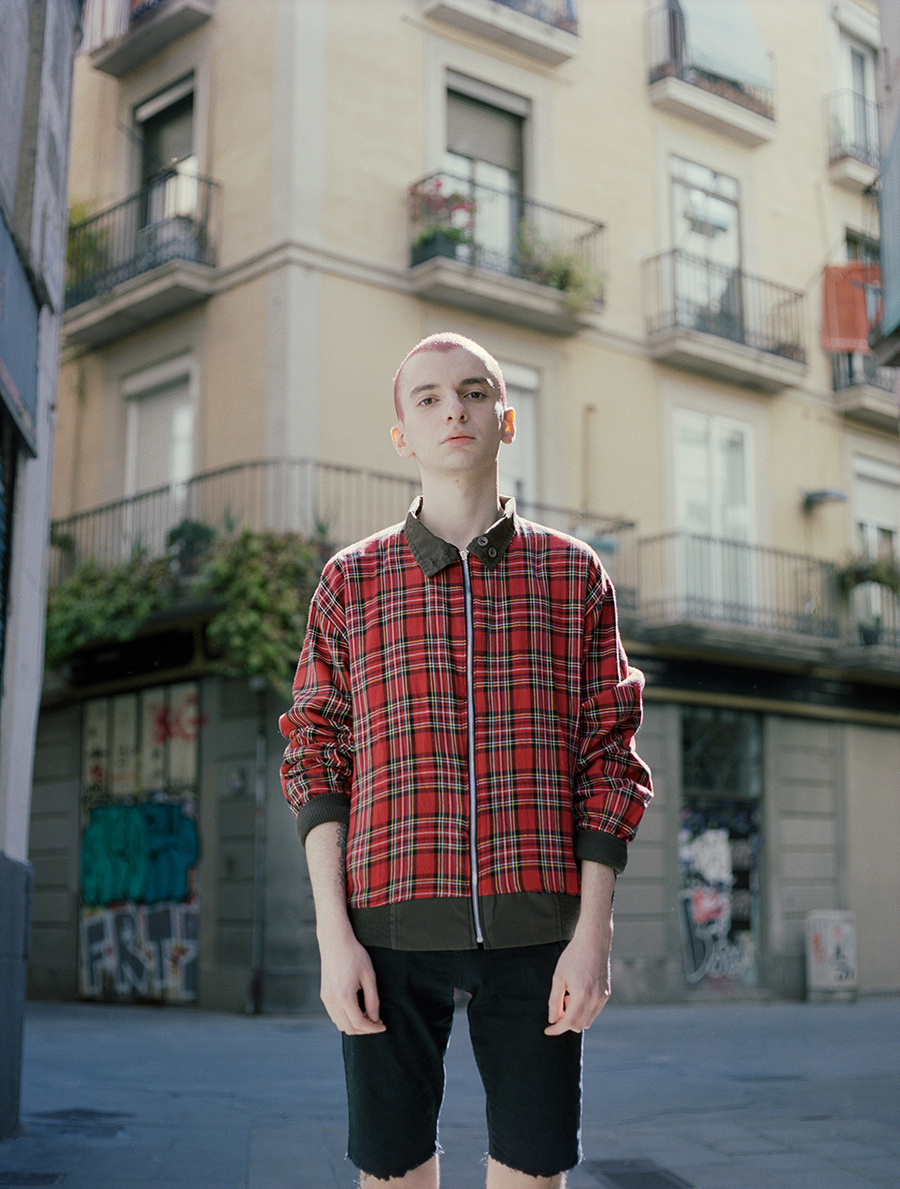
Isaac Pérez, 23, Barcelona
What do you do?
I’m a photographer, a model, and I also work at a clothing store.
What does beauty mean to you?
Any person who maximizes that which makes them different from the rest, or who simply accepts themselves just as they are.
Have you ever felt discriminated against because of your appearance?
It’s tough being the very skinny and pale kid with the biggest nose in the class, at least in my experience.
How do you think we could defy the pre-established standards?
With more mental breadth, beginning with ourselves whenever we go out onto the street.
How do you feel social media has affected our concept of beauty?
Social networks have helped democratize our perception of beauty — they imply that it doesn’t follow one specific pattern.
When do you feel best about your image?
I feel more comfortable at night. At night, people tend to be more accepting of diversity and of everything they can’t understand in the light of day.

Mireia Pascual, 22, Mataró
What do you do?
I finished my graphic design studies last year, and I’m trying to separate myself from what I speculated would be the rest of my professional life. For now, I’m working as a freelance designer and I contribute as an editor at a trend magazine.
What does beauty mean to you?
Beauty is so abstract and subjective that defining it means limiting it. To me, it’s something that makes you feel — whether that’s peace, excitement, or rejection — it moves you and wakes you up. I include rejection because a lot of the time we find beauty in unexpected places or in negative situations. Sometimes it’s a matter of turning your head a bit to perceive all the beauty that surrounds us.
Have you ever felt discriminated against because of your appearance?
Unfortunately more times than anyone should, but I still feel fortunate because I’ve managed to find a light that I previously thought was unthinkable. I’ve always been a very social person, but wouldn’t fit in with just any group. I’ve had lots of different friendships and I’ve gone through many different phases in the pursuit of finding myself and fitting in. I think I’ve always struggled to fit because I always wanted to, but obviously at 15 years old, without knowing social circles outside the periphery, you don’t understand that maybe a certain place isn’t right for you, and that you’re not the problem.
Do you consider Spain’s prevalent beauty ideals to be inclusive?
In a way, I think so. In Spain, there’s still remnants of what once was a country of young señoritos and señoritas, but there are many of us who, whether individually or collectively, fight to change some of those “traditions.” Being unable to grow body hair or having my male cousin not be able to wear a skirt to school were established norms, and they’re going to change, but there’s still a lot of work to do with the archetypes that the new generation absorbed from its predecessor. I also think all the “nothing tastes as good as skinny feels” garbage hasn’t hit us as hard as other countries, although unfortunately I’ve grown up with people who have suffered from eating disorders.
How do you think we could defy these pre-established standards in our country?
By always being ourselves. Oscar Wilde’s quote “Life imitates art far more than art imitates life,” captures the energy I’m referring to. I think if we’re ourselves and have ourselves and our potential as a reference model, there won’t be anything to belittle us. On the other hand, changing the current standard of beauty contributes to society’s well-being, and it should be a political cause [for everyone], including public figures [who have influence]. But of course, the ones on top aren’t very interested in that.
When do you feel best about your image?
The truth is that it depends on the day. Sometimes it’s when I wake up before washing my face, and sometimes it’s at 6:00 PM in the evening with two pounds of makeup on my face. To me, it’s important that — even if I feel sort of okay — I don’t lose my essence, and I know who I am at all times. So that I never get lost again.
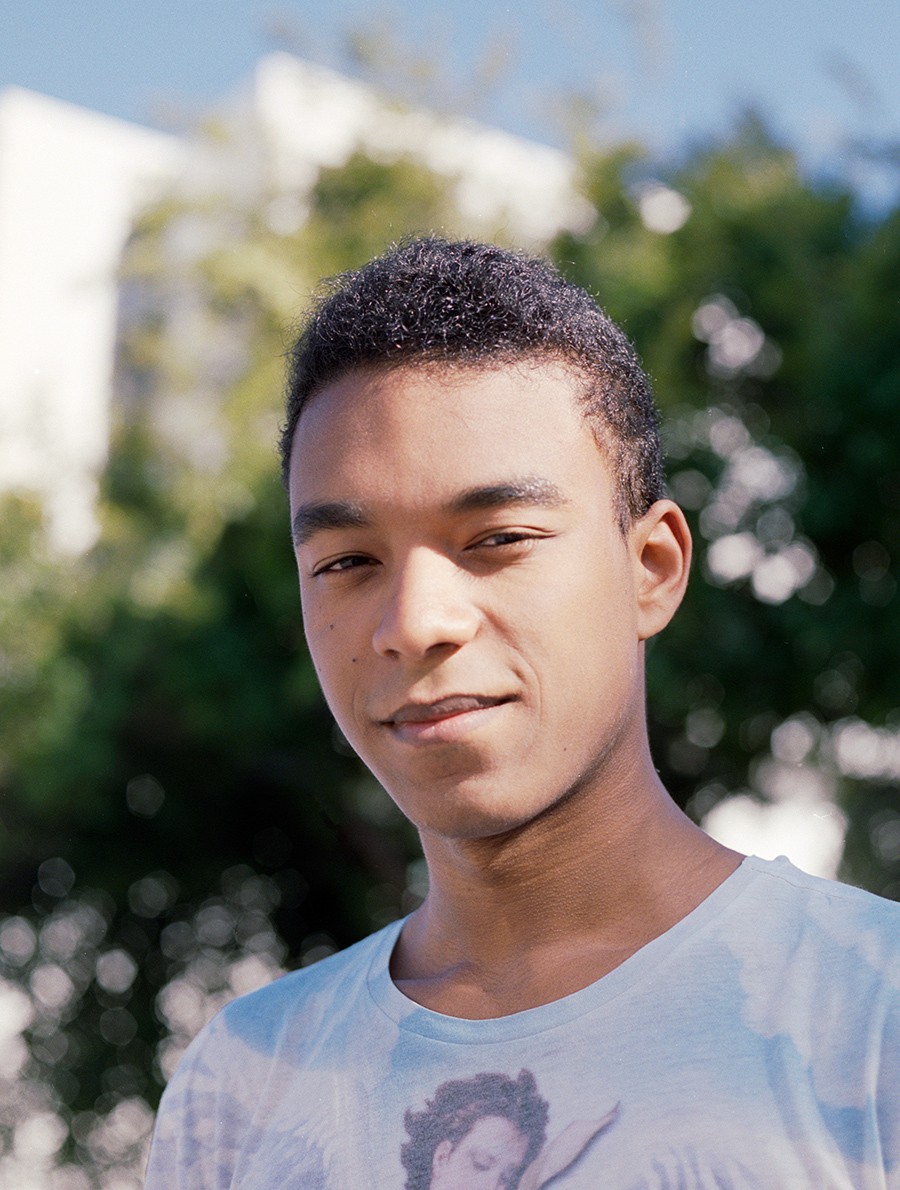
Abdi Cherbou, 20, Barcelona
What do you do?
I’m an actor.
What does beauty mean to you?
It’s a very relative concept. In society it’s considered something very superficial, but I think it goes way beyond that.
Have you ever felt discriminated against because of your appearance?
We all have moments of weakness. Still, it’s not something I usually keep in mind.
How do you feel social media has affected our concept of beauty?
On social media beauty is usually sold as an idyllic product, one that doesn’t leave any margin for error. If, to all of this, we add the fact that this influences people at a very young age, we’re more likely to grow up with insecurities.
When do you feel best about your image?
Mostly when I’m being myself and I forget prejudices.
Credits
Text Álvaro Piñero
Photography Irene Moray
Translation Liz Godoy
